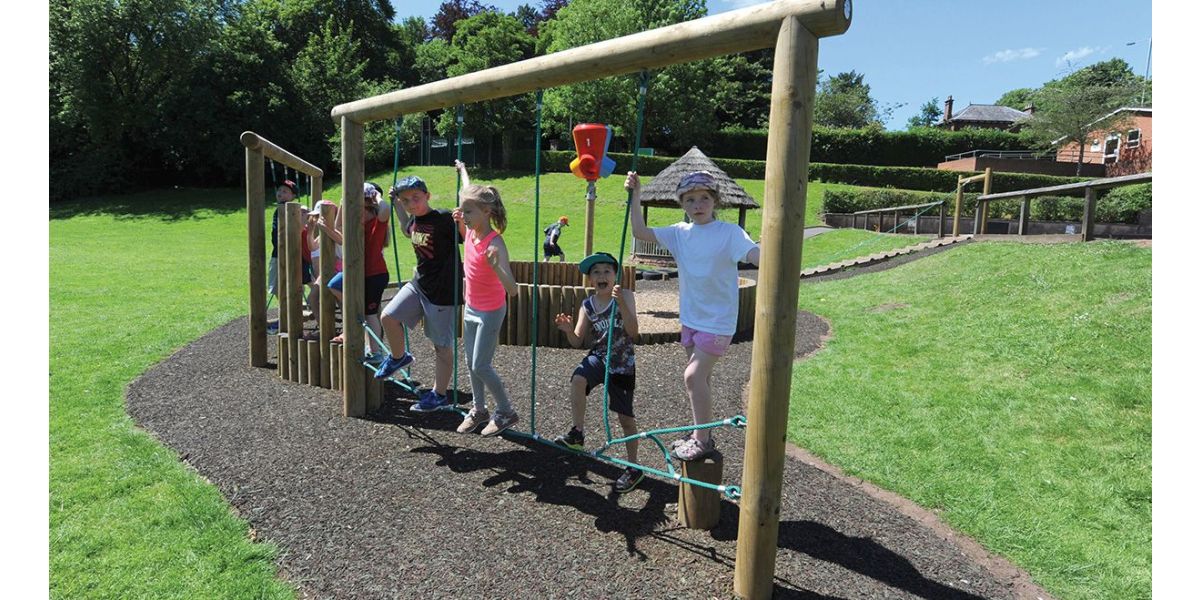We use cookies to make your experience better. Learn more
Importance of Outdoor Play in Schools

In a world dominated by screens and sedentary lifestyles, the significance of outdoor play in schools cannot be overstated. It is a well-established fact that children learn best when they are actively engaged and exploring the world around them. By incorporating outdoor play into the school curriculum, we can foster holistic development, enhance academic performance, promote physical health, and cultivate a lifelong appreciation for nature. In this blog post, we will delve into the numerous benefits of outdoor play and why it should be an integral part of every school's educational approach.
Holistic Development
Outdoor play is a catalyst for holistic development, encompassing physical, cognitive, social, and emotional aspects of a child's growth. When children step outside the confines of a classroom, they encounter a vast array of sensory experiences that stimulate their senses and promote cognitive development. They learn to navigate challenges, solve problems, and think critically in a real-world context.
Moreover, outdoor play encourages social interaction and cooperation among children. It provides opportunities for team building, negotiation, and conflict resolution, fostering essential social skills. The open-ended nature of outdoor environments allows children to express their emotions freely, boosting their emotional intelligence.
Enhanced Academic Performance
Contrary to popular belief, outdoor play is not solely reserved for recreational purposes; it has a profound impact on academic performance as well. Numerous studies have shown that exposure to nature and outdoor play positively affects concentration, memory, and attention span.
Outdoor environments offer a dynamic setting for hands-on learning. Science lessons come alive as children explore the natural world, observing plants, animals, and ecosystems firsthand. Mathematics can be taught through measuring and building structures. Language skills are enhanced as children engage in imaginative play and storytelling. By integrating outdoor play into the curriculum, schools can create an engaging and memorable learning experience that complements classroom instruction.
Promoting Physical Health
The prevalence of sedentary lifestyles and childhood obesity has become a growing concern. Outdoor play provides an ideal opportunity for children to engage in physical activity, promoting overall health and well-being. Running, climbing, jumping, and playing sports outdoors help children develop motor skills, coordination, and balance.
Exposure to natural sunlight stimulates the production of vitamin D, essential for bone health and immune function. Outdoor play also reduces the risk of myopia, commonly known as nearsightedness, which has seen an alarming increase in recent years. Additionally, outdoor play encourages children to embrace an active lifestyle from an early age, laying the foundation for a lifetime of healthy habits. By prioritizing outdoor play in schools, we can combat the sedentary epidemic and equip children with the tools they need to lead physically active lives.
The importance of outdoor play in schools cannot be understated. It is not merely a break from the traditional classroom setting but a valuable component of a comprehensive education. Through outdoor play, children develop holistically, enhance their academic performance, nurture their social skills, and improve their physical health.
Educational institutions must recognize the inherent benefits of outdoor play and integrate it into their curriculum. By creating outdoor learning spaces, fostering a connection with nature, and encouraging active engagement, schools can provide a well-rounded education that equips children with the skills and values necessary to thrive in the modern world. Let us embrace the great outdoors and unlock the full potential of our students.



